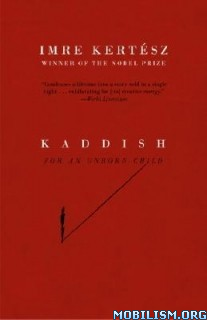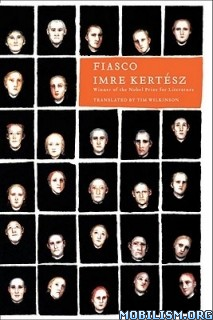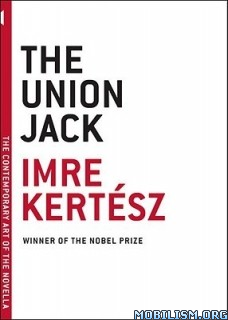2 Novels and 1 Novella by Imre Kertesz (Kertész) (Translation by Tim Wilkinson)
Requirements: ePUB Reader | 4 MB
Overview: Born in Budapest in 1929, Imre Kertész was imprisoned at Auschwitz in 1944, and then at Bunchenwald concentration camp. After the war and repatriation, the Soviet seizure of Hungary ended Kertész’s brief career as a journalist. He turned to translation, specializing in German language works, and later emigrated to Berlin. Kertész was awarded the Nobel Prize for literature in 2002 for "writing that upholds the fragile experience of the individual against the barbaric arbitrariness of history."
Genre: Hungarian Literature / History


Kaddish for an Unborn Child
The first word in this mesmerizing novel by the winner of the Nobel Prize for Literature is “No.” It is how the novel’s narrator, a middle-aged Hungarian-Jewish writer, answers an acquaintance who asks him if he has a child. It is the answer he gave his wife (now ex-wife) years earlier when she told him that she wanted one. The loss, longing and regret that haunt the years between those two “no”s give rise to one of the most eloquent meditations ever written on the Holocaust. As Kertesz’s narrator addresses the child he couldn’t bear to bring into the world he ushers readers into the labyrinth of his consciousness, dramatizing the paradoxes attendant on surviving the catastrophe of Auschwitz. Kaddish for the Unborn Child is a work of staggering power, lit by flashes of perverse wit and fueled by the energy of its wholly original voice.
Fiasco
Fiasco joins its companion volumes Fatelessness and Kaddish for an Unborn Child in telling an epic story of the author’s return from the Nazi death camps, only to find his country taken over by another totalitarian government. Fiasco as Imre Kertesz himself has said, "is fiction founded on reality"—a Kafka-like account that is surprisingly funny in its unrelentingly pessimistic clarity, of the Communist takeover of his homeland. Forced into the army and assigned to escort military prisoners, the protagonist decides to feign insanity to be released from duty. But meanwhile, life under the new regime is portrayed almost as an uninterrupted continuation of life in the Nazi concentration camps-which, in turn, is depicted as a continuation of the patriarchal dictatorship of joyless childhood. It is, in short, a searing extension of Kertesz’ fundamental theme: the totalitarian experience seen as trauma not only for an individual but for the whole civilization—ours—that made Auschwitz possible.
The Union Jack
An unnamed narrator recounts a simple anecdote, his sighting of the Union Jack—the British Flag—during the Hungarian Revolution of 1956, in the few days preceding the uprising’s brutal repression by the Soviet army. In the telling, partly a digressive meditation on "the absurd order of chance," he recalls his youthful self, and the epiphanies of his intellectual and spiritual awakening—an awakening to a kind of radical subjectivity. In his Nobel address Kertesz remembered:
"I, on a lovely spring day in 1955, suddenly came to the realization that there exists only one reality, and that is me, my own life, this fragile gift bestowed for an uncertain time, which had been seized, expropriated by alien forces, and circumscribed, marked up, branded—and which I had to take back from ‘History’, this dreadful Moloch, because it was mine and mine alone…"
Download Instructions:
http://gestyy.com/wLffCJ
Mirror:
http://gestyy.com/wLffCZ
"Fatelessness" (first book) here:http://forum.mobilism.org/viewtopic.php?f=121&t=468185&hilit=kertesz

